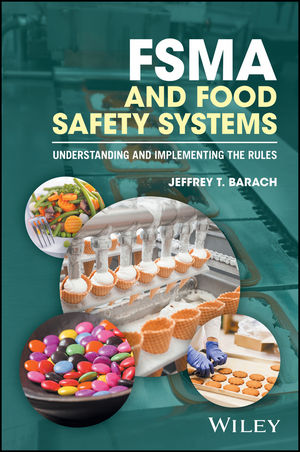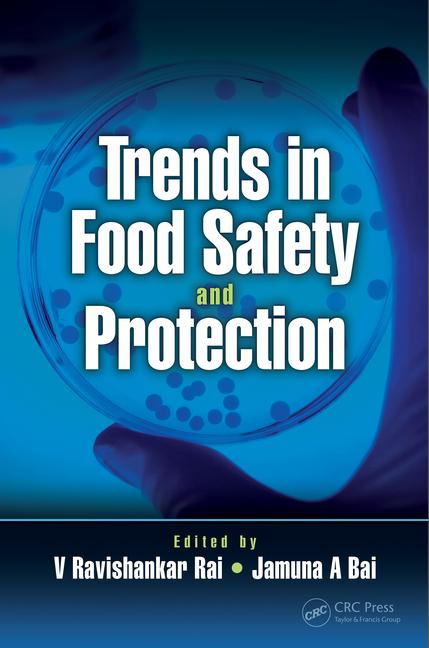Criminal Prosecutions in the Food Industry: Adulteration and Prison Time

On March 15, 2016, this column discussed the increase in criminal prosecutions of both corporations and responsible individuals for incidents relating to unsafe food. But the ante appears to have once more increased, and the Supreme Court will be the deciding vote. The question now is whether “responsible corporate officers” whose company introduces adulterated food into interstate commerce can be sentenced to jail time, even if they had no knowledge of the adulteration. According to a federal district court and the Eighth Circuit Court of Appeals, the answer is yes. The U.S. Supreme Court will have the final say.
Austin “Jack” DeCoster and his son, Peter DeCoster, owned Quality Egg, LLC when it was responsible for a 2010 outbreak of Salmonella that sickened as many as 56,000 individuals. Ultimately, in 2014, Quality Egg itself pled guilty to: (a) a felony violation of 18 U.S.C. §201(b)(1) for bribing a U.S. Department of Agriculture (USDA) inspector; (b) a felony violation of 21 U.S.C. §221(a) for introducing misbranded eggs into interstate commerce with intent to defraud and mislead; and (c) a misdemeanor violation of 21 U.S.C. §331(a) for introducing adulterated eggs into interstate commerce. Pursuant to that plea, the company paid $6.8 million.
The DeCosters themselves each pled guilty to misdemeanor violations of 21 U.S.C. §331(a) as responsible corporate officers under the Federal Food, Drug & Cosmetic Act (FD&C Act). In the plea agreements, the DeCosters stated they had not known that the eggs were contaminated at the time of the shipments but stipulated that they were in positions of sufficient authority to detect, prevent and correct the sale of contaminated eggs had they known about the contamination. The violation carried the possibility of up to 1 year in prison and up to a $100,000 fine. The sentencing court determined that although there was no evidence that the DeCosters had actual knowledge that their eggs were infected with Salmonella, their business practices were so egregious that this case involved more than “a mere unaware corporate executive.” Consequently, the DeCosters were each sentenced to 3 months in prison and fined $100,000.
Assuming the truth of the defendants’ claim that they had no knowledge of the contamination, this is one of the first instances of a corporate representative being sent to prison for unsafe food they knew nothing about. The sentence was upheld by the Eighth Circuit Court of Appeals on July 6, 2016. A petition for writ has now been filed with the U.S. Supreme Court. The primary issue is whether a corporate official can be jailed for something they did not know about. Numerous amicus briefs have been filed in support of the DeCosters by business and industry groups.
The DeCosters argued to the Eighth Circuit that incarceration for acts committed by others is a violation of due process. They cited many cases that have held to that effect. Criminal liability most always attaches only when there is intent to commit a wrongful act. Unfortunately, those other cases weren’t decided under the FD&C Act. The court found that under the FD&C Act, a corporate officer is held accountable not for the acts or omissions of others, but rather for his own failure to prevent or remedy the conditions which gave rise to the charges against him. Thus, the court found that there was some measure of blameworthiness that was imported directly to the corporate officer. While other situations might constitute violations of due process, the FD&C Act language was clear that it was Congress’ intent to make such penalties an option. As the trial court found, the FDCA “punishes neglect where the law requires care.”
In 2015, Stewart and Michael Parnell were convicted of 72 counts of fraud, conspiracy and the introduction of adulterated foods into interstate commerce. Stewart Parnell was sentenced to 28 years and Michael Parnell was sentenced to 20 years for their responsibility in a Salmonella outbreak with their company, the Peanut Corporation of America. The difference is that the Parnells were found guilty of having actual knowledge and facilitating the spread of the contamination.
The egregious conditions on the Quality Egg facilities and bad conduct such as bribing a USDA inspector may have tipped the scales in favor of jail time for the DeCosters. But even without such aggravating circumstances, responsible corporate officers are susceptible to jail time and large fines for adulterated foods of which they have no knowledge. And there is no guaranty that the next case will be quite so obvious.
Fanning the flames, the Department of Justice (DOJ) has stated that it will no longer wait for an U.S. Food and Drug Administration referral of food contamination, but will instead investigate and pursue those it deems threats to the safety of food in commerce. There is also a stated commitment by the DOJ to hold not just companies criminally liable but to pursue those individuals responsible for the company’s actions. The DOJ announced in 2015 that it believed that the most effective way to ensure corporate accountability in the future was to hold the individuals behind the corporations individually accountable for unlawful conduct.
For now, the only thing between the DeCosters or other “responsible corporate officers” and prison is the U.S. Supreme Court. The Court should decide by December whether or not to consider the DeCosters’ petition for writ. If it declines or rules against the petition, the DeCosters will serve their 3 months. Perhaps more importantly, responsible corporate officers need to find out what they don’t know about what they don’t know.
Kathy Hardee, Esq., is co-chair of the Food & Agriculture Industry Group at Polsinelli, PC, which is composed of a team of attorneys from every legal practice area and who each have a focused background in the food industry.
Editor's Note: See our Oct. 8th update on the DeCosters' case and final appeal ruling.
Looking for a reprint of this article?
From high-res PDFs to custom plaques, order your copy today!








